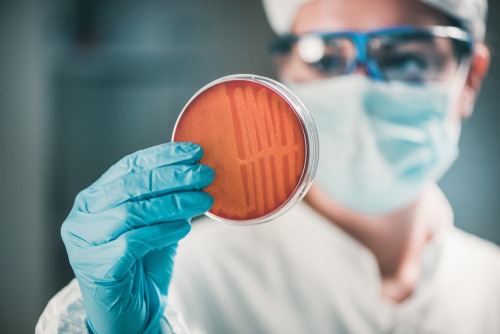
The U.S. Department of Defense awarded a $1.4 million grant to scientists at West Virginia University (WVU) to develop therapeutics to treat infections prone to antibiotic resistance.
Mariette Barbier of the WVU School of Medicine will lead the research effort. Barbier and her team will present potential solutions to the growing public health challenge of antibiotic resistance and prepare the DOD for bioterrorism risks.
“One of the missions of the DOD is preparedness against biological threats,” Barbier, assistant professor in the Department of Microbiology, Immunology and Cell Biology, said. “Some bacteria are potential bioterror agents, but there are also bacteria within those same families that are responsible for causing hospital-acquired infections. By focusing on these species of bacteria, we’re casting a broad net to address potential biological threats as well as infections that afflict everyday patients.”
Barbier’s team will seek to combine antibodies — blood proteins that seek out and bind to specific antigens on pathogens — with antimicrobials. This combination may create a therapeutic potent enough to treat infections, Barbier said. The team also consists of Slawomir Lukomski, associate professor, and Alexander Horspool, scientist in charge of antibody discoveries within the WVU Vaccine Development Center. Researchers from the Massachusetts Institute of Technology and the University of Maryland will also collaborate with WVU on the project.
“The types of infections caused by these organisms are really broad,” Barbier said. “You’ve got respiratory infections, skin infections, bladder infections, and you’ve got all sorts of infections resulting from surgical procedures. With this project, we’re hoping to develop new ways to fight these infections or even prevent them to start with. What we’ve realized is how powerful our own immune systems and antibodies can be. So what we propose here is to harness that aspect of our immune system and use it for treatment.”
According to the Centers for Disease Control and Prevention, nearly 3 million people in the United States get an antibiotic-resistant infection each year – with about 35,000 dying each year from the infection. This happens when bacteria and fungi are too powerful for the drugs designed to kill them. One reason antibiotics have a hard time conquering bacteria is due to bacteria’s ability to adapt to new and changing environments.
The project will utilize artificial intelligence and machine learning techniques that will be developed at the MIT Computer Science and Artificial Intelligence Lab.
“We’re not just addressing current problems,” Barbier said. “We’re also looking at the future in terms of making predictions as to what treatment could be efficacious to help us fight the next bacterial pandemic.”




